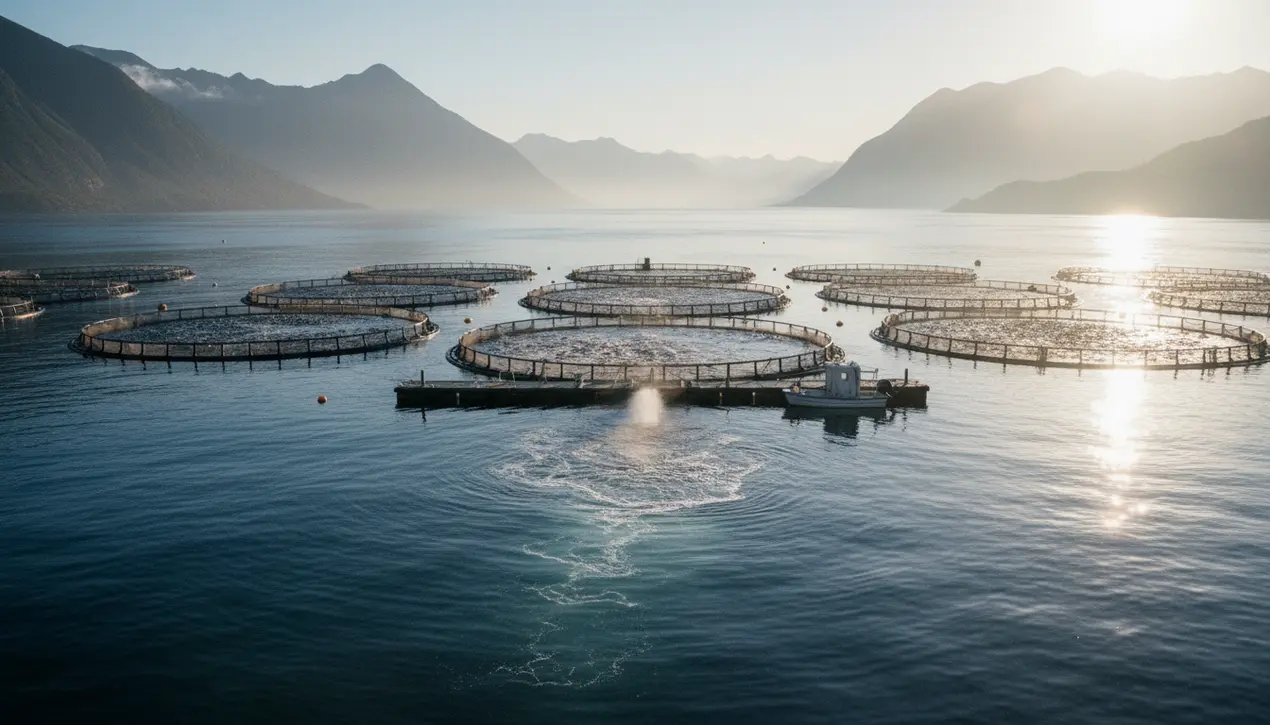
SciencebiologyMarine Biology
Blue Harvest: The Unseen Expansion of Industrial Aquaculture
RA
Rachel Adams
5 hours ago7 min read1 comments
A vast, submerged agricultural network is transforming our coastal seascapes, presenting critical questions about sustainability, ethics, and the future of our oceans. As global demand for seafood surges, aquaculture has become the world's fastest-growing food sector, with a pivotal milestone reached: over half of all fish consumed by humans now originates from farms rather than wild fisheries.This shift marks a new era of marine domestication, an industrial-scale operation that some critics describe as the ocean's equivalent of factory farming. The environmental costs are significant.Dense concentrations of fish in offshore pens release substantial amounts of waste, while the spread of parasites and diseases from captive populations threatens wild fish swimming nearby. For migratory species like salmon, life in confinement represents a drastic departure from their innate, open-water journeys.Concurrently, scientific understanding of aquatic life is evolving. A growing body of research on fish sentience indicates a capacity for pain and complex social behaviors, challenging long-held assumptions and prompting a re-evaluation of the welfare standards within this burgeoning industry.The rapid growth of aquaculture places immense strain on already vulnerable marine ecosystems, which play a crucial role in global climate regulation. The story of farmed fish is, therefore, more than a tale of food production; it is a narrative about humanity's deepening footprint on the planetary seascape and the urgent choices we face in managing this blue revolution.
#aquaculture
#fish farming
#animal welfare
#seafood
#ethics
#environmental impact
#featured
Stay Informed. Act Smarter.
Get weekly highlights, major headlines, and expert insights — then put your knowledge to work in our live prediction markets.
Related News
Comments
Loading comments...
© 2025 Outpoll Service LTD. All rights reserved.